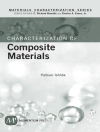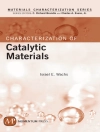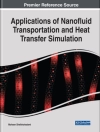This book showcases cutting-edge research papers from the 9th International Conference on Research into Design (ICo RD 2023) – the largest in India in this area – written by eminent researchers from across the world on design processes, technologies, methods and tools, and their impact on innovation, for supporting design for a connected world. The theme of ICo RD’23 has been ‘Design in the Era of Industry 4.0’. Industry 4.0 signifies the fourth industrial revolution. The first industrial revolution was driven by the introduction of mechanical power such as steam and water engines to replace human and animal labour. The second industrial revolution involved introduction of electrical power and organised labour. The third industrial revolution was powered by introduction of industrial automation. The fourth industrial revolution involves introduction of a combination of technologies to enable connected intelligence and industrial autonomy. The introduction of Industry 4.0 dramatically changes the landscape of innovation, and the way design, the engine of innovation, is carried out. The theme of ICo RD’23 – ‘Design in the Era of Industry 4.0’ –explores how Industry 4.0 concepts and technologies influence the way design is conducted, and how methods, tools, and approaches for supporting design can take advantage of this transformational change that is sweeping across the world. The book is of interest to researchers, professionals, and entrepreneurs working in the areas on industrial design, manufacturing, consumer goods, and industrial management who are interested in the new and emerging methods and tools for design of new products, systems, and services.
Jadual kandungan
PART I: Design Aesthetics, Semiotics, Semantics.- 1. Relevance of textile Wash-care symbols in context of India.- 2. Copper-Craft Product Narratives: An Understanding of Users Perception on Associated Narratives used for Designing Copper-Craft Product.- 3. A study on the Impact of Visual Metaphor in Mascot across Culture.- 4. Sociocultural Returns of Aesthetics Education: a Yogic Neurodesign Framework.- 5. A qualitative study on colour trend forecasting in the futuristic passenger vehicles for point-to-point commute in India.- 6. Cultural Dynamics of Chinese Calligraphy from a Semiotic Gaze. A Design-oriented Platform to Valorize Cultural Heritage.- 7. Designing blended environments: Cultural heritage as a tool to create humane virtual spaces and tech-inspired seamlessness in tangible products.- 8. The TIME IS A CIRCLE/CYCLE metaphor in Denis Villeneuve’s film ‘Arrival’ (2016).- 9. A Study of Young User Preferences for Form and Color as an Influential Design Attribute.- 10. Trends in the Gond Aesthetics and Narrative Styles in Graphic Novels. etc.
Mengenai Pengarang
Amaresh Chakrabarti is Senior Professor and current Chairman for the Centre for Product Design & Manufacturing, Indian Institute of Science (IISc), Bangalore. He has B.E. in Mechanical Engineering from Indian Institute of Engineering Science and Technology, Shibpur, M.E. in Design of Mechanical Systems from Indian Institute of Science, Bengaluru, and Ph.D. in Engineering Design from the University of Cambridge UK. He led for ten years the Design Synthesis group at the EPSRC funded Centre of Excellence called the Engineering Design Centre at University of Cambridge before joining Indian Institute of Science as Associate Professor in 2001. His interests are in synthesis, creativity, sustainability, and informatics. He published 16 books, over 300 peer-reviewed articles, and has 11 patents granted/pending. He co-authored DRM, a methodology used widely as framework for design research. He has been Associate Editor, AI EDAM & Design Science Journal (Cambridge University Press), Area Editor, Research in Engineering Design, Regional Editor, Journal of Re-manufacturing (Springer), and Advisory Editor for eight Journals including Clean Technologies & Environmental Policy (Springer), and Journal of Engineering Design and International Journal of Design Creativity & Innovation (Taylor & Francis). He has been on the Advisory Board and the Board of Management of the Design Society, UK; Member of the CII National Committee on Design India; Member of the Jury of India Design Mark; and Member of the CII Smart Manufacturing Council India. He founded IDe ASLab – India’s first Design Observatory. He is Founding Programme Chair for International Conference Series on Research into Design (ICo RD), Conference Chair for the 22nd CIRP Design Conference 2012 and the 3rd International Conference on Design Creativity 2015 (3rd ICDC), and Vice-Chair for AI in Design and Design Computing & Cognition Conferences. He is Honorary Fellow of the Institution of Engineering Designers, the highest honour of the peer society under the UK Royal Charter in engineering design, and TUM Ambassador Awardee from TU Munich Germany. Sixteen of his papers won top paper awards in international conferences. In 2014, he co-initiated India’s first Smart Factory R&D platform. He also heads the IISc-TCS Innovation Lab, the IISc Press, and the Springer International Book Series on Design Science & Innovation. He has received Careers360 Faculty Research Award 2018 for being the ‘Most Outstanding Researcher’ in Decision Sciences. He is the current Editor-in-Chief for AI EDAM Journal (CUP).
Vishal Singh is Associate Professor in the Centre for Product Design and Manufacturing at IISc. Before joining IISc, he was Assistant Professor in the Department of Civil Engineering at Aalto University, Finland, besides a brief stint as Director, Innovation at the Helsinki Metropolia University of Applied Sciences where he led the Research & Development strategy for the Data-Driven Construction Innovation Hub. At Aalto, Vishal led the Aalto BIM Collaboration and built the Integrated Construction Innovation and Collaboration (ICONIC) Lab focusing on construction informatics and Building Information Modelling (BIM). Previously, he has also worked in Australia as Postdoctoral Research Fellow at Deakin University and as Research Assistant at the University of Newcastle. His research and teaching have revolved around digitalisation and construction informatics, looking at the products, processes, people, and policy aspects of Building Information Modelling (BIM) and Product Lifecycle Management (PLM) approaches, complemented by his research on design and construction innovation. His research builds on design thinking, computational thinking, and systems thinking to understand and develop tools and methods to study built environment innovation ecosystems, ranging from micro-ecosystems within project teams to macro-ecosystems at the urban and global levels. He also serves on the scientific committee of several international conference series across engineering design, product informatics, and lifecycle management. He has also served as Chair of the Educational Committee in EC3, the European Council for Computing in Construction. He has also been Regular Contributor and Reviewer across several noted academic journals.












